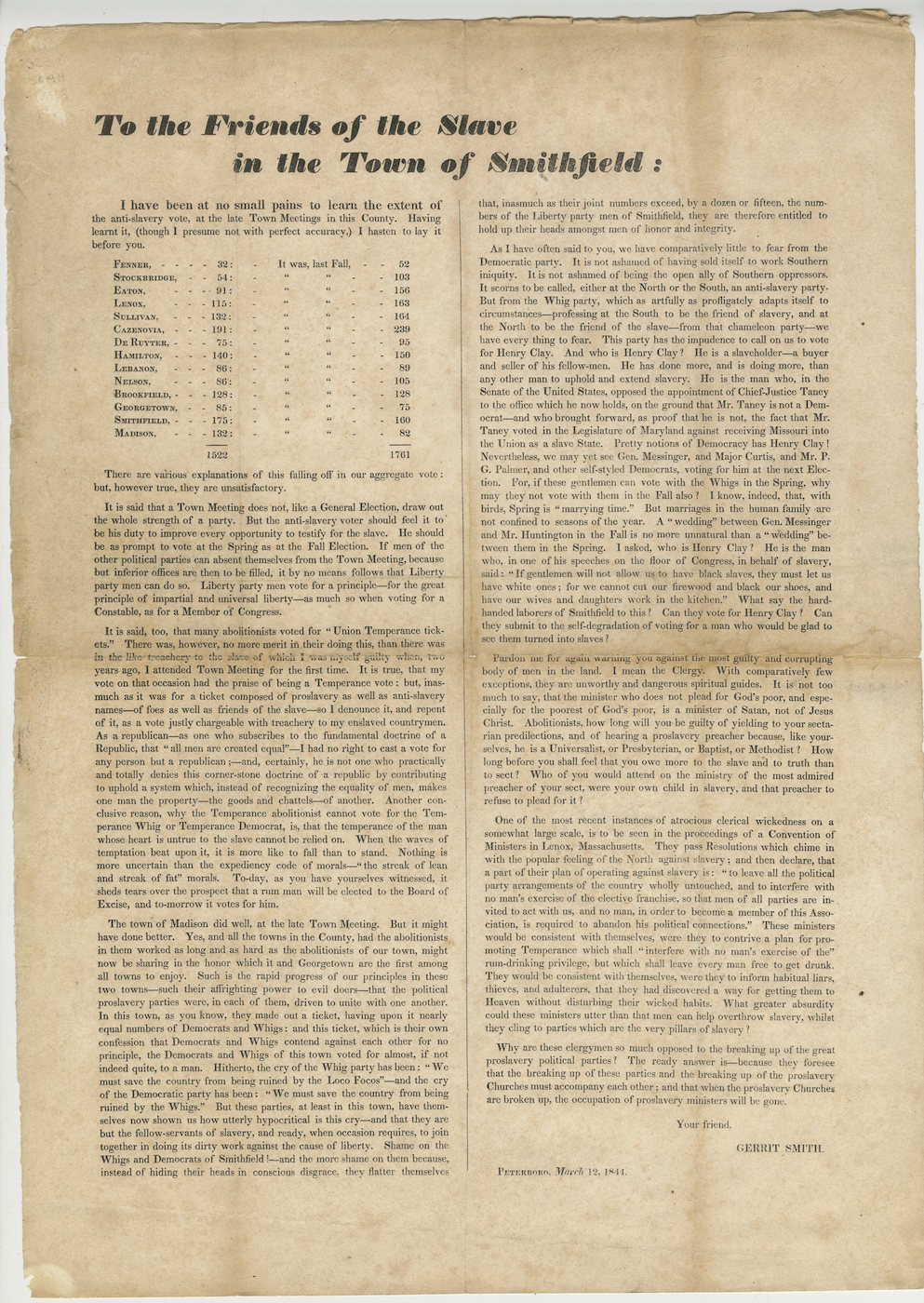a large, fiery, antislavery broadside by one of the Secret Six
SMITH, GERRIT. To the friends of the slave in the town of Smithfield
Peterboro, New York: [Smith], March 12, 1844
Broadside. 16 ½ x 12 in. Old folds, light wear, soiling.
FIRST EDITION. Gerrit Smith, one of the wealthiest men in New York, devoted his prodigious wealth and energy to the antislavery movement for decades. He provided financial backing for every aspect of the struggle, funding abolitionist societies, newspapers, and political parties, paying attorneys’ fees, providing land and money to indigent Blacks and escaped enslaved families, and more. As one of the Secret Six he provided the financial backing allowing John Brown to make his raid on Harper’s Ferry.
Frederick Douglass dedicated My Bondage and My Freedom (1855) to Smith, writing, “To honorable Gerrit Smith, as a slight token of esteem for his character, admiration for his genius and benevolence, affection for his person, and gratitude for his friendship, and as a small but most sincere acknowledgement of his pre-eminent services in behalf of the rights and liberties of an afflicted, despised and deeply outraged people, by ranking slavery with piracy and murder, and by denying it either a legal or Constitutional existence, this volume is respectively dedicated, by his faithful and firmly attached friend, Frederick Douglass.”
In this rare broadside Smith analyzes the antislavery vote in New Hampshire and discusses trends the antislavery movement. He observes that the movement has little more to fear from the Democratic party, which openly aligns itself with Southern oppressors.” But he calls the Whig party a “chameleon” that claims to be proslavery in the South and antislavery in the North.
Smith saves his strongest barbs for the Whigs’ Henry Clay, whom he quotes: “If gentlemen will not allow us to have black slaves, they must let us have white ones; for we cannot cut our firewood, and black our shoes, and have our wives and daughters work in the kitchen.” Smith answers, “What say the hard-handed laborers of Smithfield to this? Can they vote for Henry Clay? Can they submit themselves to the self-degradation of voting for a man who would be glad to see them turned into slaves?”
$2,500



